If we’re going to be honest, we can all agree that not everyone is born to be the office sunshine. Some people bring croissants and jokes to share with everyone, and others bring noise-canceling headphones and a deep, soul-binding love for pivot tables. And you know what? That’s okay.
But apparently, being quiet, productive, and drama-free is now considered a workplace offense, or at least it was for today’s Original Poster (OP) who dared to be an introvert in a sea of extroverts and fun-loving colleagues. Her story shows what happens when you don’t play the game of performative workplace cheer.
More info: Reddit
Introversion is often misunderstood in the workplace, but many introverts simply prefer to listen, think deeply, and focus quietly on their tasks

Image credits: Kindel Media / Pexels (not the actual photo)
The author is a quiet, hardworking analyst who joined a marketing agency and preferred to stay focused rather than socialize
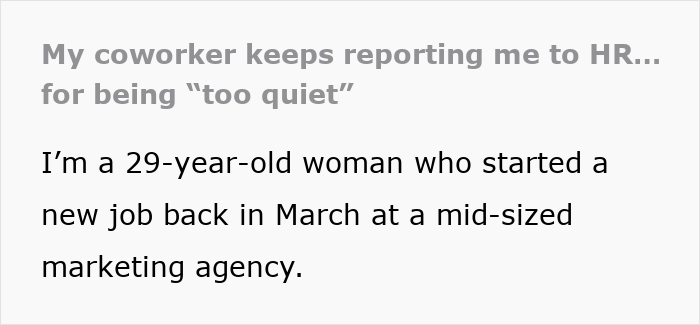
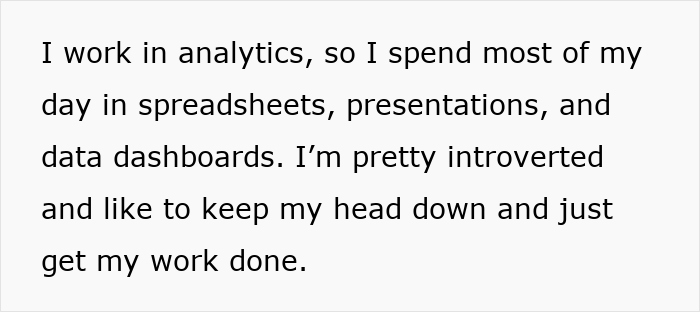

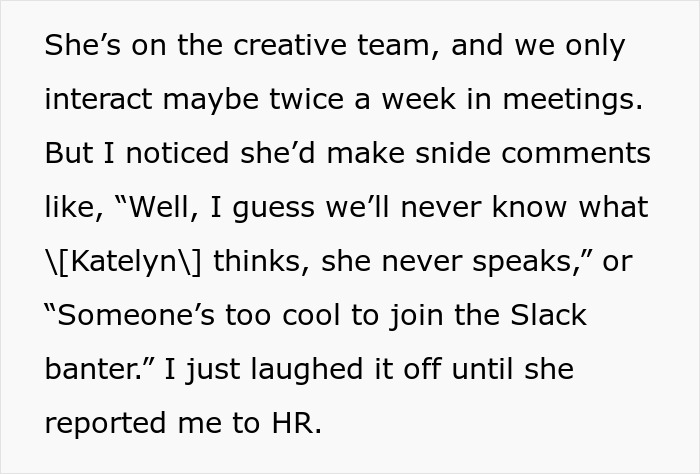
Image credit: Kataklysm17

Image credits: RDNE Stock project / Pexels (not the actual photo)
A coworker began making snide remarks about her introversion and eventually filed a complaint to HR



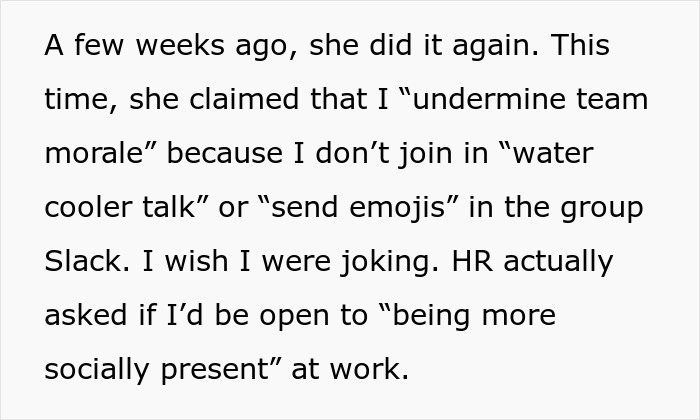
Image credit: Kataklysm17

Image credits: Timur Weber / Pexels (not the actual photo)
Although HR and her manager acknowledged her strong performance, they documented the complaint and suggested being more “socially present”
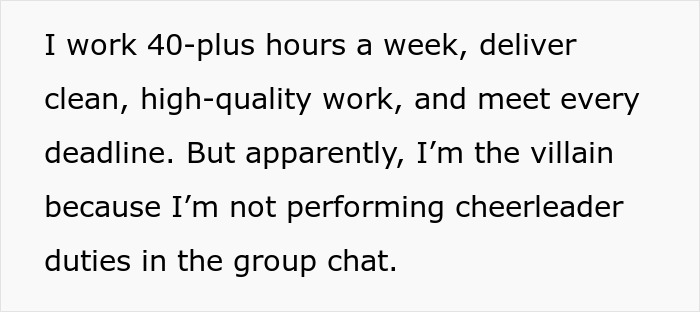
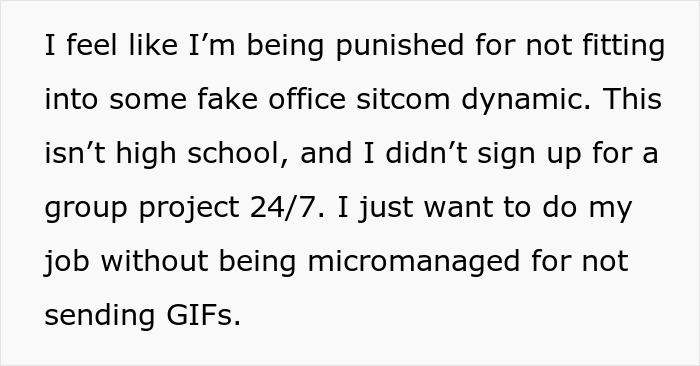

Image credit: Kataklysm17
The coworker escalated things with another HR report over her lack of emojis and watercooler talk, leaving her feeling unfairly targeted
The OP, an analytics professional, joined a mid-sized marketing agency earlier this year. Her role was to pretty much crunch numbers, make sense of data, and keep the business moving behind the scenes. She described herself as introverted and the type to just get work done.
Despite her stellar performance and praise from her manager, the OP began to feel targeted by a coworker from the creative team who didn’t appreciate her reserved demeanor. The coworker often made passive-aggressive remarks during meetings, poking fun at the OP’s quiet nature and lack of participation in social Slack threads.
At first, she brushed it off, until she realized that the coworker had gone ahead to file a formal complaint to HR, accusing her of being “emotionally distant” and disruptive to team morale due to her silence. HR, to their credit, acknowledged the OP’s excellent work, but still had to document the complaint for procedural reasons.
Despite the lack of actual misconduct, this left the OP feeling blindsided and under scrutiny. The complaints didn’t stop there because a few weeks later, the same coworker reported her for not using emojis or engaging in banter. This time, HR then asked the OP to consider being “more socially present.”
To better understand the fine line between personality quirks and genuine workplace issues, Bored Panda spoke with HR expert Gift Ebi, who emphasized the importance of impact over style. “HR typically isn’t there to police personalities, they care more about impact,” she said.

Image credits: Mikael Blomkvist / Pexels (not the actual photo)
While individuality adds value, intervention becomes necessary when behaviors start disrupting productivity, creating tension, or making colleagues feel unsafe. “It’s not about forcing everyone to be the same, it’s about making sure the workplace stays respectful, collaborative, and functional for everyone,” she highlighted.
We also asked whether being “socially present” should be part of job performance, to which Ebi responded that it can be fair if expectations are clear and fit the role. “Social presence isn’t necessarily about being outgoing or bubbly, it’s about being approachable, respectful, and responsive,” she explained.
She also stressed that HR should avoid one-size-fits-all standards that punish introverts for being quieter. “When handled thoughtfully, this balance allows different personality types to thrive while supporting strong team dynamics.”
Finally, we sought advice for employees who feel targeted by bad-faith complaints. Ebi urged calm professionalism, saying, “Don’t take the bait. I’d say stay calm, document everything, and go through the proper channels.”
Direct confrontation may escalate tensions, so it’s best to present clear examples to HR or management. “Framing it objectively, not personally, shows maturity and helps HR take the issue seriously,” she noted, emphasizing that ultimately, the goal is to protect yourself while encouraging a fair, professional resolution.
Netizens rallied behind the OP, expressing frustration with both the coworker and HR’s response. Many believe the OP is being harassed for simply being introverted and professional, urging her to document everything and push back. Others placed blame squarely on HR, accusing them of enabling toxic behavior instead of protecting a solid employee.
What do you think about this situation? Should being less social at work ever be considered a problem? We would love to know your thoughts!
Netizens urged the author to push back, insisting that at this point, the coworker’s actions are just harassment
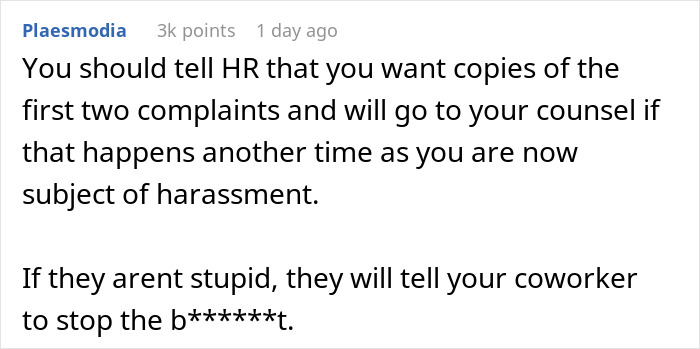




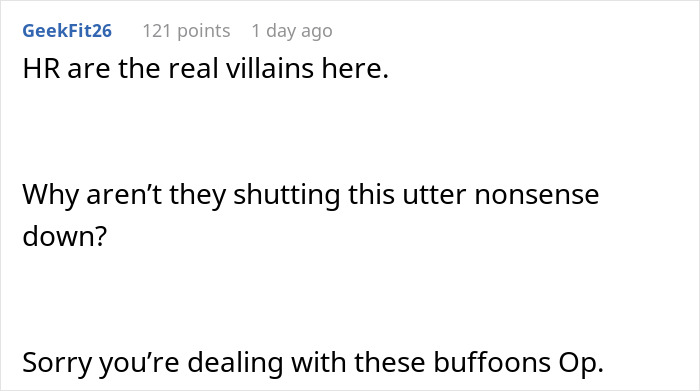


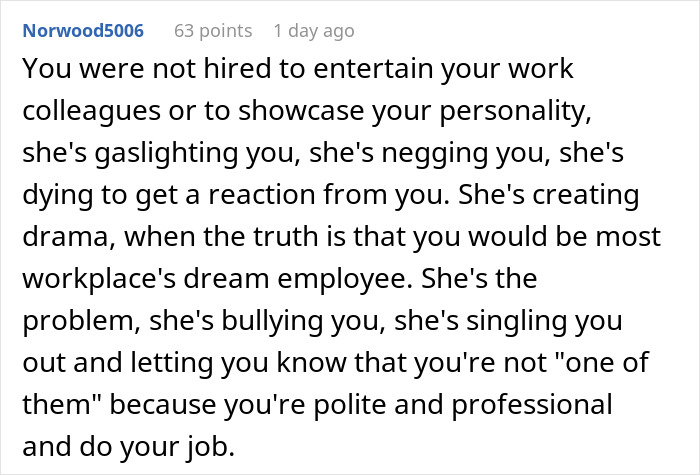

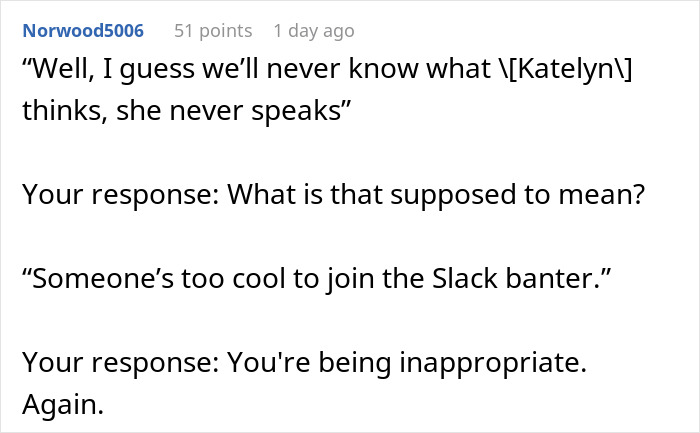
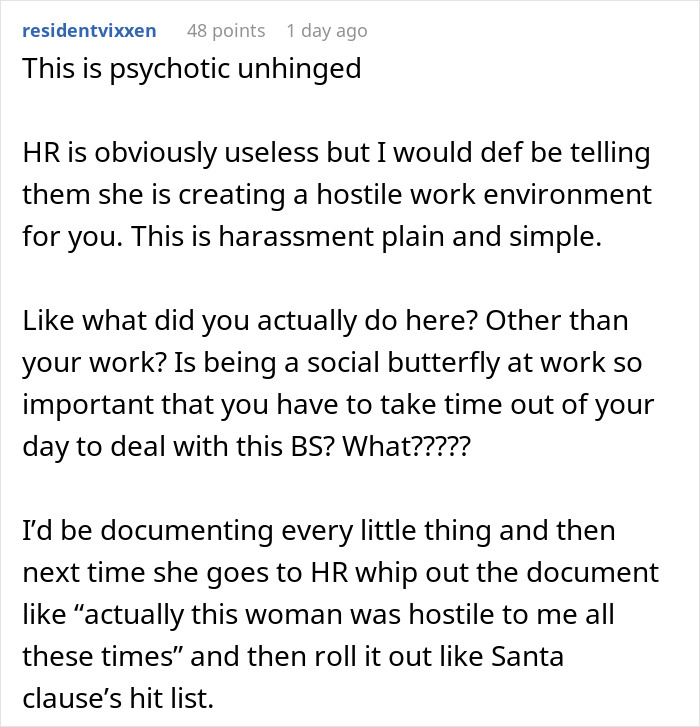

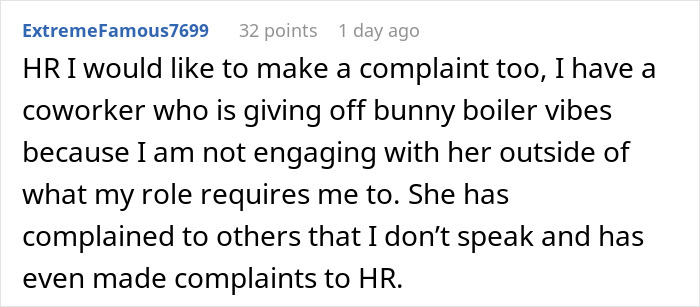
from Bored Panda https://ift.tt/g1IKcAs
via IFTTT source site : boredpanda